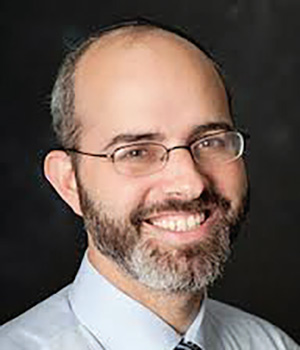
May these words of Torah serve as a merit le’iluy nishmat Menachem Mendel ben Harav Yoel David Balk, a”h.
This week we learned Sanhedrin 105. These are some insights.
Sanhedrin 105: Does Judaism believe in reincarnation?
The Karaites were a cult of Jews who only accepted the literal meaning of the Torah’s words and rejected the oral tradition. They also believed in reincarnation. They believed that souls would come back and live multiple times. They even claimed that the soul of a person might come back and get reincarnated into the body of a dog or a cat. Rav Sa’adia Gaon fiercely fought the Karaites and their heresy. In Emunot VeDeiot (Ma’amar 6 Os 7), Rav Sa’adia Gaon rejects the belief in reincarnation. He calls such a belief a confused hallucination. The masters of Jewish mysticism, however, teach that Judaism does believe in reincarnation of souls. Ya’avetz points out that Rav Sa’adia was never exposed to the Kabbalah. The Kabbalists talk often about reincarnation. Ben Yehoyada feels that our Gemara is proof to the doctrine that souls return.
Our Gemara states that Lavan the Aramean, Be’or (father of Bilam) and Kushan Rishatayim (a Syrian king who enslaved the Jews in the days of the Jewish judge Otniel ben Kenaz) were all the same person. Ben Yehoyada argues that this Gemara cannot be taken literally. Ya’avetz points out that more than 500 years elapsed from the days of Lavan to the days of the Jewish judges. Bilam himself only lived for 33 years (Sanhedrin 106b). It is hard to accept that his father Be’or lived for more than 500 years. Our Gemara is based on the doctrine of gilgulim. The soul of Lavan was reincarnated into Be’or and later it entered the world again as Kushan Rishatayim. Rav Yosef Chaim in his responsa Torah Lishmah (Siman 458) quotes an interesting proof to the concept of gilgulim. Shlomo Hamelech declares in Kohelet, (1:4) “Dor holeich v’dor ba—a generation goes and then a generation comes.” This seems out of order. It should state: a generation comes and then a generation goes. The order of the verse is to teach us that many souls are reincarnated. The souls of a generation leave and then they come back in new bodies. A generation goes in order to then come back.
Ramban in his commentary to the book of Iyov (Chapter 33) teaches that the doctrine of reincarnation helps resolve the challenge of why the righteous suffer. Many righteous people are reincarnated souls. Sins performed in earlier incarnations impact the fate of their lives while living at this time.
The concept of reincarnation is invoked by poskim. Shu”t Maharam Mintz (Siman 14) rules that a father may not recite the blessing of “who performs for the guilty acts of kindness” (hagomel lachayavim tovot) when his young child recovers from an illness. A father can cause a child to get ill. Children are punished for the sins of their father. For this reason, when a child reaches adulthood, a blessing is recited in which the father expresses thanks that he will no longer cause any misfortune to his child, “Baruch shep’tarani mei’onsho shelazeh.” But, not every misfortune of the child is from the father. Sometimes, the child suffers because of actions that he performed in an earlier iteration of life. The father has no share in that guilt. Perhaps, the illness this child suffered from was due to actions in an earlier incarnation. The father therefore cannot honestly say that he is the guilty one who received a favor when his son recovers. He cannot say “hagomel lechayavim tovot sheg’malani kol tov.”
Shu”t She’eilat Ya’avetz (Chelek Alef Siman 110) thinks that the prohibition against causing an animal pain, tza’ar ba’alei chayim, only applies to animals that perform labor, such as oxen or horses. There is no prohibition against afflicting or killing small creatures, such as worms or flies, that do not serve man. Ya’avetz rules that a person may kill flies that annoy him. The fly is angering the person and there is no law of caring for the life and welfare of little critters. But, Ya’avetz records that the holy Ari would instruct his students not to harm any creature, even the mosquitos. The Ari felt that you never know where a soul might be reincarnated. The fly buzzing near you might contain a gilgul. The very pious therefore treat it with care and respect (Mesivta, Me’orot Daf Hoyomi).
By Rabbi Zev Reichman
Rabbi Zev Reichman teaches Daf Yomi in his shul, East Hill Synagogue.











